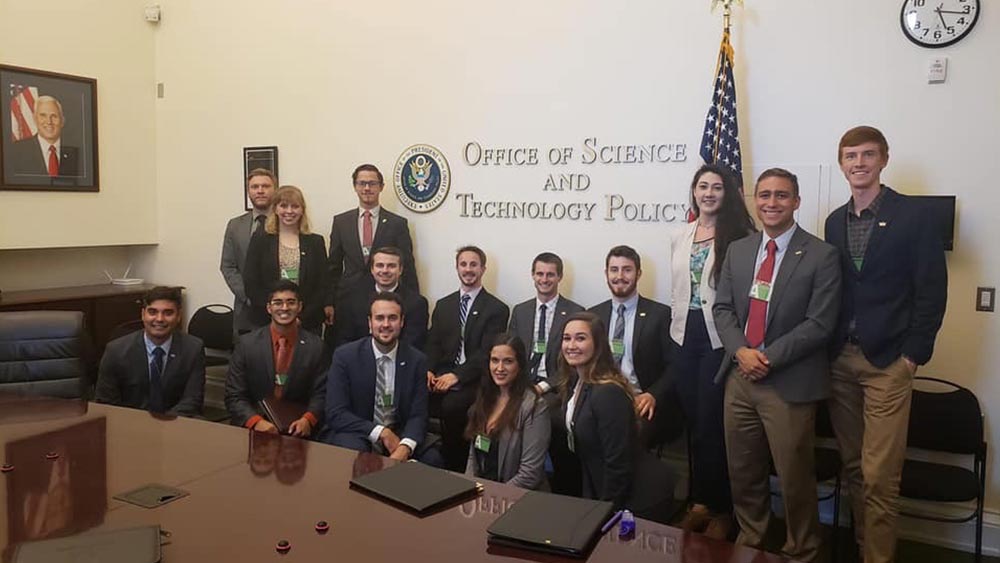
Each year, 16 of the nation’s brightest students head to Washington, D.C. to discuss the issues facing nuclear energy, policy, education and research with key policymakers. Traditionally composed of only nuclear engineering students, the Washington Nuclear Engineering Student Delegation has broadened over the years to include students from a diverse assortment of disciplines including, but not limited to, nonproliferation, national security, health physics, and environmental science and policy.
The application process consists of a short essay, resume and interview with the delegation officers. Brent Hollrah, mechanical engineering graduate student who is serving as this year’s vice chair for the delegation, said they’re primarily looking for effective and persuasive communicators.
“Since we’ll be interacting with policymakers, we’re looking for students who can communicate highly technical ideas to the nontechnical audience.” said Hollrah. “Our goal is to encourage legislators to take action on the issues we’re bringing to light.”
Prior to the actual visit to Washington, student delegators will meet to research the current climate and policy issues surrounding nuclear energy and research on Capitol Hill. This unique opportunity allows students to have an insider’s perspective about the legislative side of nuclear energy. Students can expect to meet with other organizations such as the Nuclear Energy Institute and congressional fellows from the American Nuclear Society.
“We already know the textbook definition of how a bill becomes a law,” said Hollrah. “But reading a textbook doesn’t give you the same experience as meeting with these different professional organizations. We’re able to see all of the work that goes into it — from lobbying to the unofficial likelihood that a bill will pass.”
The delegation is tentatively scheduled to be in person, Sept. 26-Oct. 1, 2021. The option of a virtual delegation is reserved if necessary. Applications to join this year’s Nuclear Engineering Student Delegation are now open and the deadline to apply is April 30, 2021.
Both undergraduate and graduate students of all majors with an interest in nuclear policy issues are encouraged to apply for the delegation.